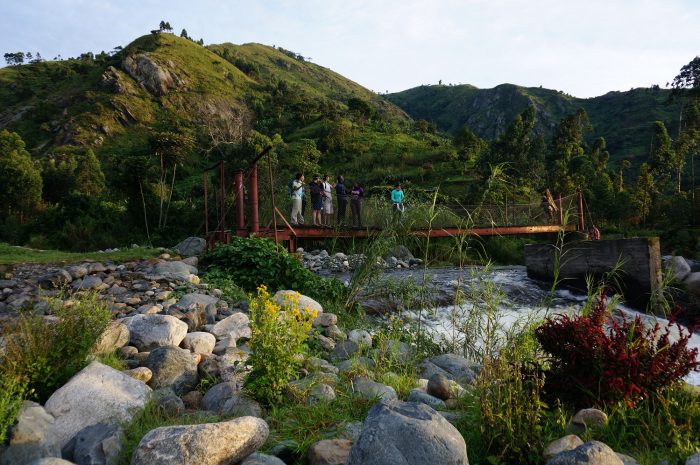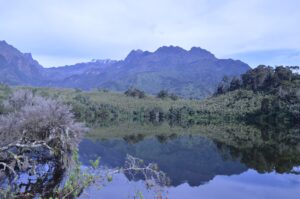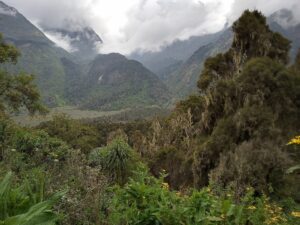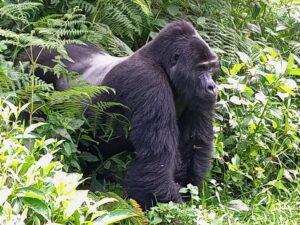In Uganda, community tourism refers to tourism services and experiences that are part of the community daily life in the local setting, presented to the tourists by the community members themselves and the proceeding benefits of these activities go directly to the community. In community tourism, the community members are involved in the planning and managing the tourist experiences. Thus, they own a big stake of the proceeds and other resulting benefits. Community tourism products/ experiences in Uganda can be divided into four sections;
- Community accommodation: These include camping grounds, home stays, lodges and guest houses. The accommodation facilities are developed or prepared to provide accommodation services to the travelers who come from outside the community. they are mainly a replication of the hotel ideas that the community adapts from different impressions including change of knowledge with travelers and other tourism service providers of varied levels.
- Community tours and demonstrations: These include excursions, demonstrations/workshops and cultural performances that showcase the natural and cultural heritage of the local community. These tours dwell on the local cultural and social aspects of the area and attractions. the demonstrations include dance and drummer, presentations and workshops of making local cultural items, goods and products.
- Handicrafts and souvenirs: These are local arts and crafts sold in the shops, displays or exhibitions. they are mainly traditional crafts made by the locals using locally available materials.
- Food and beverages: These are the snacks, foods and drinks sold in restaurants, bars or traditional cuisine offered in the homes.
Though each one of the above can be run individually as a community tourism product, they tend to complement each other. For example, most people who come to buy either accommodation, tours or handicrafts will normally want to have foods or drinks. On the same case, the people who come to stay for a night may want to take a walk, or a demonstration/ dance as they pass time. In all cases, people like to take tangible experience and these are the souvenirs which are the local arts and crafts, pictures or the memories.
How community tourism differed from mainstream tourism.
- They are established by the community and on the community land normally owned by a group or an individual who is a resident member of the same community, share the same beliefs and values with the surrounding community neighboring the enterprise
- Community tourism is practiced only outside the protected areas on land or natural resources that the local people are allowed to use by law without restriction. These include the water resources, forests, landscapes, cultural sites or residential villages. on contract with the park, some sales points of community tourism may be established within gazetted areas of the park.
- The community tourism enterprises are mainly run by local manpower including managerial positions.
- Community tourism considers the needs of the local community at all operation levels. This is shown by codes of contact that guide visitors from not violating the local culture, nature and life ideologies of the local people or country.
- Community tourism gives back value out of the earned proceeds and benefits, to the surrounding community members and development initiatives.
Community tourism is now becoming popular in Uganda since it is a tourists’ good entry point to the local culture and social life. This makes community tourism a key factor to successful wildlife and other mainstream tourism experiences. Supporting community tourism is one of the best ways to support conservation during travel, since most of the income goes back to the local families hence preventing them from depleting natural and cultural resources through subsistence survival.
In Uganda, community tourism is regulated by Uganda community tourism association (UCOTA) Uganda community tourism association through interpretation of policy to the local communities and collaboration with other government institutions such as the ministry of tourism and UTB. UCOTA is a membership organisation that partners with all tourism stakeholders to build, regulate and support communities involved in community tourism as a livelihood. these partners include Uganda tourism board (UTB), Uganda Tourist Association (UTA), The uganda Association of travel Agents (TUGATA), Uganda Hotel Owners Association (UHOA), Uganda Safari Guides Association (USAGA), Association of Uganda Tour Operators (AUTO) and others. For more information about Community tourism in Uganda, you can contact us through this website or contact UCOTA through the following contact details; Phone: +256 772657700 Email: ucota@ucota.or.ug Website: www.ucota.or.ug
Welcome to Uganda!!




